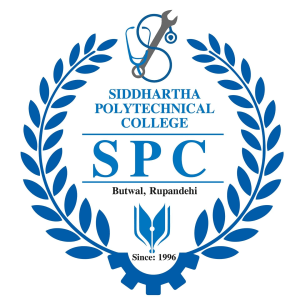Overview
Overviews of Diploma in Mechanical Engineering at Korea Nepal Polytechnic Institute (KNPI), Butwal, Nepal (affiliated with CTEVT)
Course Overview: Diploma in Mechanical Engineering is a three-year full-time course designed to impart students with the necessary skills, knowledge, and practical experience in various fields of mechanical engineering. This course equips students with technical knowledge in manufacturing, designing, and maintaining machines and mechanical systems.
Course Outlines: The course curriculum covers the fundamentals of mathematics, physics, mechanics, thermodynamics, engineering drawing, computer-aided design, materials science, and manufacturing processes. It also includes specialized subjects such as automobile engineering, power plants, refrigeration, and air conditioning.
Duration: The duration of the course is three years, consisting of six semesters.
Objectives: The primary objective of the Diploma in Mechanical Engineering is to produce highly skilled technicians with a strong foundation in mechanical engineering concepts, principles, and practices. The course aims to prepare students for the challenges of the industry and equip them with the necessary skills to adapt to emerging technologies.
Eligibility: Applicants must have secured at least grade C in Compulsory Mathematics and Compulsory Science, and grade D+ in English in their School Leaving Certificate (SLC) or SEE examination from a recognized academic institution.
Learning Outcomes: Upon completion of the course, students will have developed expertise in various fields of mechanical engineering, including design, manufacturing, maintenance, and repair of machines and mechanical systems. They will be capable of working in industries such as automobiles, aerospace, energy, manufacturing, and construction.
Scope: The Diploma in Mechanical Engineering has an extensive scope as the demand for mechanical engineers continues to grow in various industries. Graduates can pursue higher education or seek job opportunities in various fields such as design, manufacturing, power plants, automobiles, aerospace, and construction.
Career Prospects: Graduates can work as mechanical engineers, project engineers, quality control engineers, production managers, maintenance engineers, and technical consultants, among other roles. The average salary for a mechanical engineer in Nepal is NPR 442,254 per year, and the career prospects are promising.
Career Options: Graduates of the Diploma in Mechanical Engineering can work in a wide range of industries, including automobile, aerospace, power plants, manufacturing, and construction. They can work as design engineers, production engineers, quality control engineers, maintenance engineers, and technical consultants, among other roles.
Why Choose this Course: The Diploma in Mechanical Engineering is an excellent choice for those interested in the field of mechanical engineering. This course provides a strong foundation in mechanical engineering concepts, principles, and practices, and equips students with the necessary skills to succeed in the industry. It offers promising career prospects and opportunities for growth and development.
Scholarship: KNPI provides scholarship programs for disadvantaged groups and special groups as requested by CTEVT to promote access to Technical and Vocational Education and Training (TVET) in Nepal.
Contact Korea Nepal Polytechnic Institute's administrative office for detailed information on the Diploma in Mechanical Engineering course, including fees, scholarships, facilities, counseling, eligibility criteria, etc. You can also stay updated, share & read reviews, ask questions, and join discussions.













